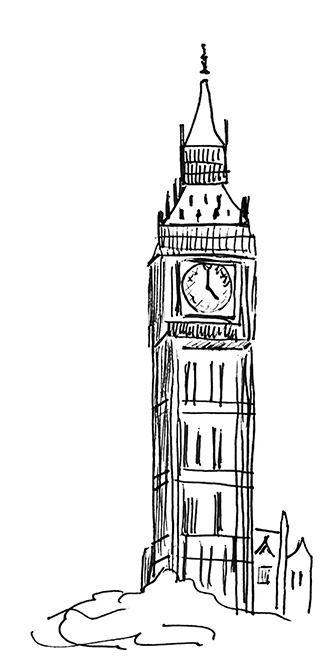 English originates from Old English, which developed during the 5th century with the arrival of Germanic tribes in England. Modern English, as we know it, is spoken since the 18th century and nowadays more than 840 million people speak English as a first or second language. It is an official language of 67 countries as well as 27 non-sovereign entities and the second most-spoken language after Mandarin. The UN currently uses six official languages: English, Arabic, French, Spanish, Russian and Chinese and approximately 85% of all international organizations have English as at least one of their official languages. The number of English language learners is constantly increasing; the British Council estimates 2 billion people will be learning it by 2020.
English originates from Old English, which developed during the 5th century with the arrival of Germanic tribes in England. Modern English, as we know it, is spoken since the 18th century and nowadays more than 840 million people speak English as a first or second language. It is an official language of 67 countries as well as 27 non-sovereign entities and the second most-spoken language after Mandarin. The UN currently uses six official languages: English, Arabic, French, Spanish, Russian and Chinese and approximately 85% of all international organizations have English as at least one of their official languages. The number of English language learners is constantly increasing; the British Council estimates 2 billion people will be learning it by 2020.
As English is such a widespread language, it is only natural that a variety of types have developed over time. The most familiar varieties of English are American, British, Canadian and Australian English. The differences between the varieties are highly important in the field of translations, as different requests call for different varieties.
American and British English differ from each other in terms of spelling conventions, word meanings and grammar rules. The most noticeable difference in spelling is probably the ‚ou‘ (e.g. colour) in British English compared to the American ‚o‘ (color). Also, Brits go on holidays, while Americans go on vacation. And New Yorkers live in apartments, while Londoners inhabit flats.
In contrast to British English, which sounds quite different from American English, spoken Canadian English sounds quite similar. Written Canadian, however, combines certain elements of American English (due to its geographical proximity) and British English (because of its history) with many Canadianisms. A popular Canadianism, for example, is the word ‚tuque‘, which would be referred to as a ‚beanie‘ or sometimes also ‚knitted cap‘ in the United States or Commonwealth Countries.
English spoken in Australia and New Zealand is very distinct from other varieties of English as it has a rather unique accent and many colloquialisms. The standard written form, though, largely resembles British English.
Another interesting fact about English is that it is not only the language of many lands but also the language of the skies. Regardless of their origin, English is spoken by all pilots to identify themselves on flights, which underlines the importance of the language.
Even though the English vocabulary is not as extensive as that of German, for example, a new word is added to the dictionary every two hours. Thus, during the course of the year, almost 4,000 new words are added. The longest word in the English language comprises a whopping 45 characters: Pneumonoultramicroscopicsilicovolcanoconiosis is a type of lung disease caused by inhaling ash and dust.
We offer translations from various languages such as English, French, Spanish or Dutch into German. We do not only work with translators in Cologne, but also have an extensive network of translators in the UK, US, Canada and Australia. Simply state your desired language variant at your commissioning and we will deliver your translation in English for the UK, US, Canada or Australia.